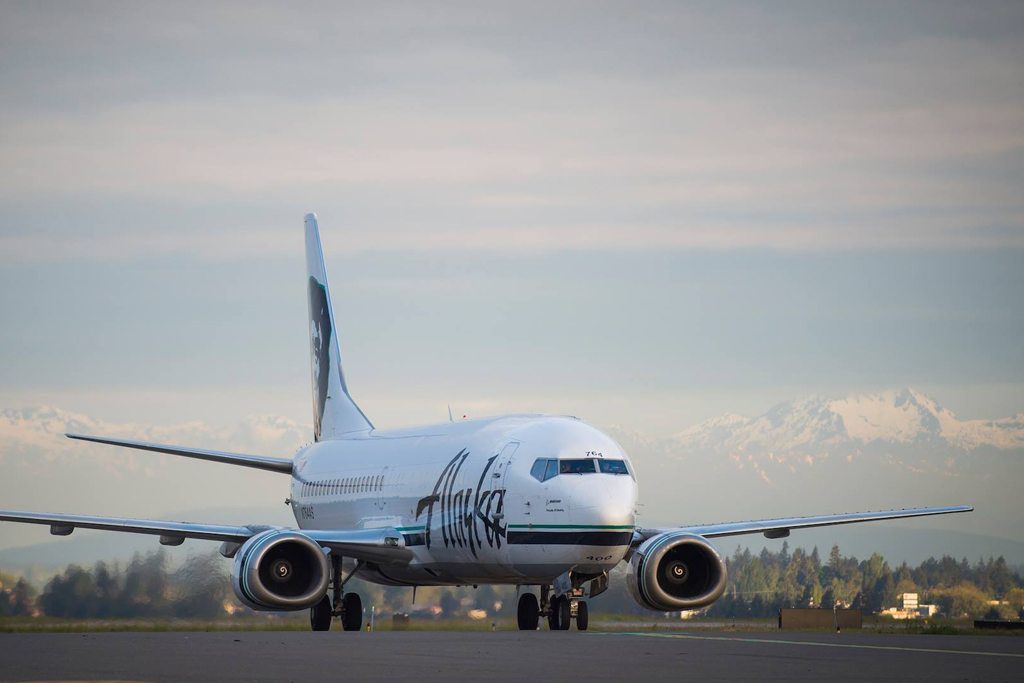JetBlue and Alaska Feel Pinch From New U.S. Transcontinental Fare War

Skift Take
U.S. airlines love to brag to investors about how much money they make selling premium seats on transcontinental flights. But the economy class picture is not so rosy, executives from several airlines said this week.
"There is just too much capacity in that market right now and we're seeing some fares that are extraordinary low," Alaska Airlines Chief Financial Officer Brandon Pedersen said Tuesday at the J.P. Morgan Aviation, Transportation and Industrials Conference in New York.
For American Airlines, United Airlines, and Delta Air Lines, it's not such a problem. They have global route networks, and weakness in one region does not constitute a material problem. At the JP Morgan event, United's Scott Kirby called the transcontinental pricing skirmish a "speed bump," telling investors "those things are going to happen."
For JetBlue Airways and Alaska Airlines, it is a bigger issue. At JetBlue, transcontinental flights accounted for 31.3 percent of capacity in 2018, up from 28.6 percent a year earlier, according to the airline's most recent annual report. Transcontinental flights account for 31 percent of Alaska's capacity, according to its website.
With fares dropping as low as $109 each way between New York and Los Angeles, JetBlue and Alaska told investors this week they'll generate less unit revenue than expected for the first quarter.
Alaska reported Tuesday it expects unit revenue to increase just 1 to 2 percent this quarter, down from an earlier estimate of 2.5 to 4.5 percent. The airline said it blames about half the decrease on the transcontinental market, noting the airline is not making as much money from last-minute tickets as expected.
JetBlue also lowered its guidance. It is now predicting its unit revenue will decrease between 1.5 and 3.5 percent, year-over-year, for the first quarter. Earlier it had said it expected unit revenue would fall 1 to 2 percent.
Like Alaska, JetBlue said it blames "low-tactical walk-up fares" from Boston and New York to California for part of the problem. JetBlue also said "broad off-peak softness" is an issue on all markets, citing on "slower economic growth."
Work Itself Out
JetBlue executives told investors they'll trim transcontinental flights during off-peak periods when demand lags. Specifically, JetBlue will cut flights on weaker days of the week, CEO Robin Hayes said.
Alaska executives said they'll probably leave capacity as it is. "We're pretty happy with where the airplanes are and the amount of capacity we have in the market," Pedersen said. "But we'll evaluate that as the year goes on."
Alaska might be in slightly better shape in the economy cabin, analyst Daniel McKenzie of Buckingham Research Group suggested Wednesday in a research report. Like United, Delta and American, Alaska has a basic-economy style offering called a Saver Fare it can offer to its most price conscious travelers. JetBlue will follow, but hasn't yet introduced its response.
"JetBlue's transcontinental growth ambitions are outsized in the context of poor revenue management sophistication, versus peers," McKenzie said, predicting this will improve by the fourth quarter when the airline unveils its update.
Some relief should come earlier, however.
Both airlines predicted the landscape will improve in late spring and summer, when leisure travel picks up. "We believe this will naturally correct as we move into peak season as demand always increases in the transcon market," Hayes said.
The problem could reoccur in the next off-peak period, perhaps after Labor Day, when leisure demand again drops. But Alaska's Pedersen said the market probably will sort itself out, as airlines usually cut fights when revenue lags, aligning seat supply with demand.
In recent years, Alaska has participated in fare wars in Seattle, Hawaii and Dallas, so Pedersen said the airline has some experience with these competitive dynamics.
"Things always seem to find their equilibrium," he said.




